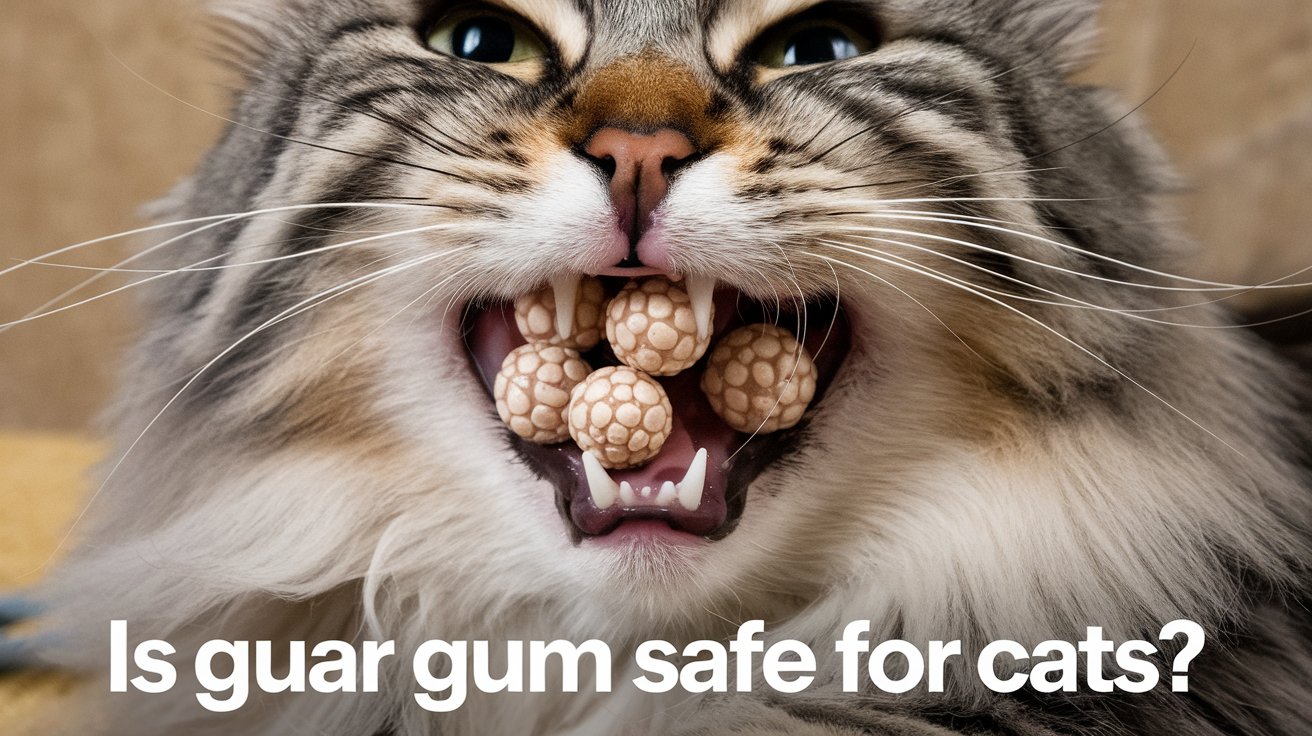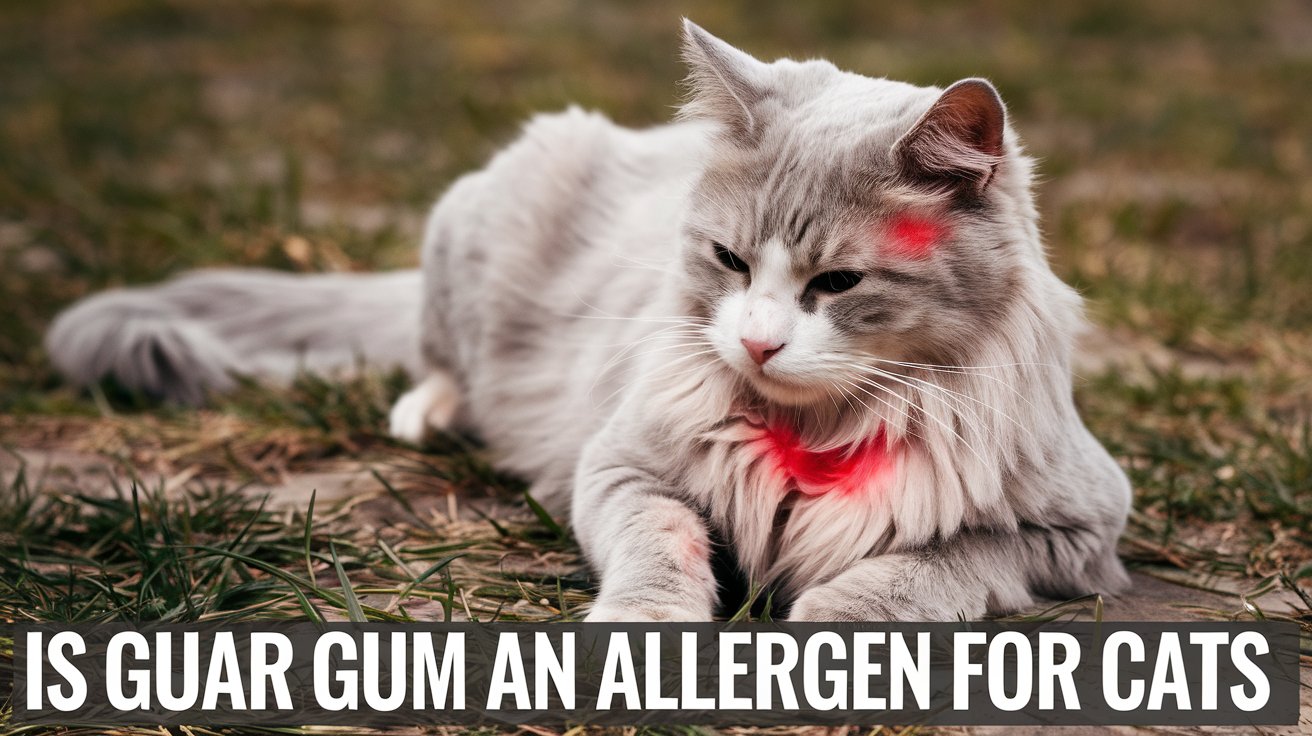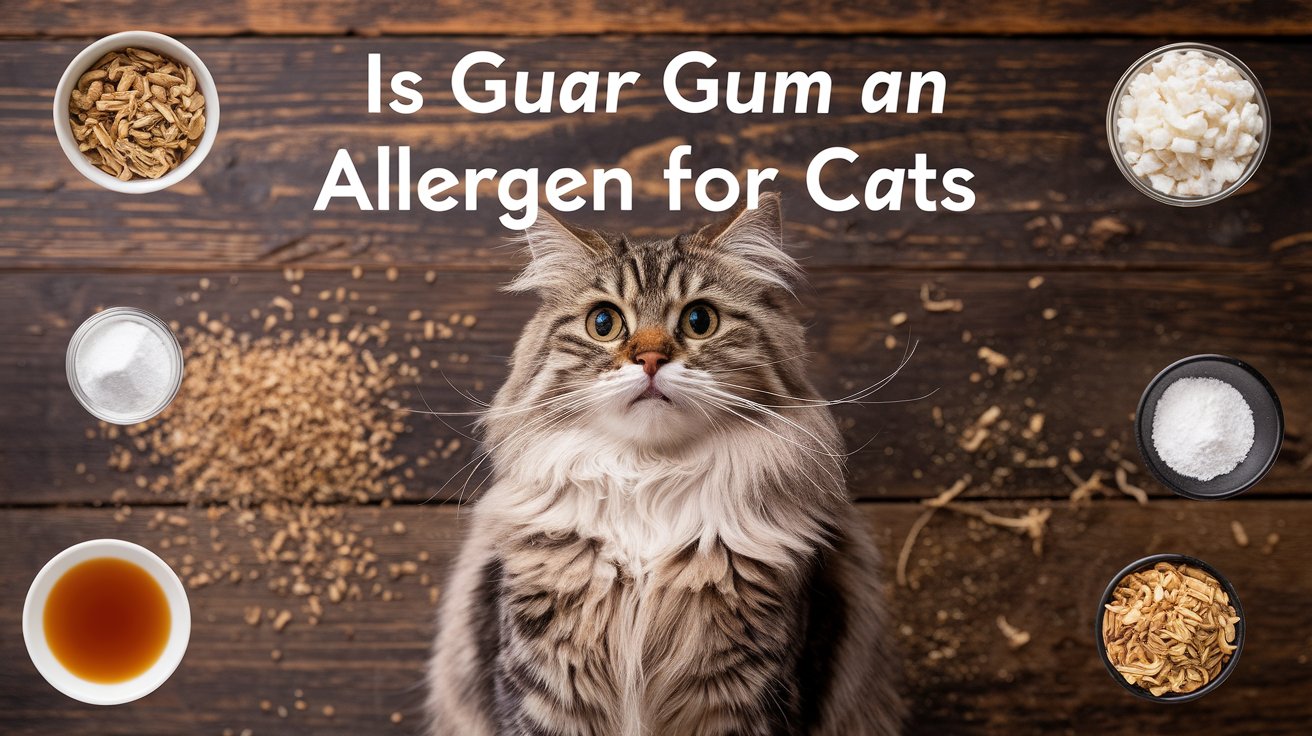
Is Guar Gum An Allergen For Cats?
Guar gum, a thickening agent derived from guar beans, is a common ingredient in various cat foods. But for pet owners who are cautious about what goes into their furry friend’s meals, a question often arises: is guar gum an allergen for cats? This article dives into the details, exploring whether guar gum can trigger allergic reactions in cats, how to identify potential issues, and what alternatives exist.
What is Guar Gum?
Guar gum is a polysaccharide extracted from guar beans, known for its powerful thickening and stabilizing properties. It’s widely used in both human and animal foods, cosmetics, and even medications. Its primary function is to thicken the texture of food products, helping to create a smoother and more cohesive product.
Why is Guar Gum Found in Cat Food?
You may wonder why this seemingly unusual ingredient is in your cat’s food. Guar gum is used in commercial pet foods to thicken and bind ingredients, ensuring that wet and dry food alike maintain an appealing texture. Additionally, it helps evenly distribute nutrients throughout the product and prevents ingredients from separating during storage.
Can Cats Be Allergic to Guar Gum?
Like humans, cats can develop food allergies, and guar gum is not entirely exempt from suspicion. While it’s rare, some cats may develop sensitivities or allergies to guar gum. However, guar gum isn’t one of the most common allergens for cats.
Common Symptoms of Food Allergies in Cats
If your cat is allergic to a food ingredient like guar gum, symptoms may include:
- Digestive issues: Vomiting, diarrhea, and loss of appetite.
- Skin problems: Excessive itching, scratching, and hair loss.
- Respiratory symptoms: Sneezing or coughing (though rare).

Is Guar Gum Safe for Cats?
The use of guar gum in cat food is regulated and considered safe when used within certain limits. The FDA approves guar gum for use in animal foods as long as it remains within the recommended quantity. Cats typically consume small amounts of it, making the chances of harm quite low unless your cat has a specific sensitivity or allergy.
Are All Cats Sensitive to Guar Gum?
Not all cats react to guar gum. Some cats may have no issues with guar gum, while others with sensitive digestive systems might experience discomfort. Factors like a cat’s breed, age, and overall health can influence its reaction to certain ingredients.
What Causes Cat Food Allergies?
Food allergies in cats are primarily caused by proteins like chicken, beef, or fish. However, non-protein ingredients, like preservatives or thickeners such as guar gum, can also play a role. Compared to other allergens, guar gum is less likely to trigger an allergic reaction.
Signs Your Cat Might Be Allergic to Guar Gum
If your cat exhibits unusual behavior or physical signs after eating, guar gum may be a culprit. Look out for:
- Skin rashes or redness
- Hair loss or patches of baldness
- Vomiting or diarrhea
- Lethargy or reluctance to eat
How to Diagnose a Cat Allergy to Guar Gum
Diagnosing a food allergy in cats often requires a bit of detective work. Your vet might recommend an elimination diet—removing all potential allergens, including guar gum, from the cat’s food to see if the symptoms subside. Slowly reintroducing foods will help pinpoint the specific trigger.
What to Do If Your Cat is Allergic to Guar Gum
If it turns out that guar gum is causing your cat’s allergic reactions, the solution is simple: switch to a guar gum-free food. Many commercial cat foods are free of guar gum, or you could look into homemade cat food options, ensuring complete control over the ingredients.
The Role of Commercial Cat Foods
It’s crucial to read the ingredient list carefully when choosing a new cat food. Many wet and dry foods are designed for cat allergies, free from common triggers like guar gum and other additives.
Can You Prevent Allergies in Cats?
Preventing food allergies altogether can be challenging, but there are steps you can take to reduce the risk:
- Introduce new foods slowly.
- Avoid changing your cat’s diet frequently.
- Choose high-quality, balanced cat food that uses minimal additives.
Natural Alternatives to Guar Gum in Cat Food
If you’re concerned about guar gum in your cat’s food, several natural alternatives can serve as thickening agents, including agar-agar and xanthan gum. These options can offer similar benefits while potentially making your cat’s digestive system easier.

Conclusion
While guar gum is generally safe and approved for use in cat food, some cats can develop sensitivities or allergies to this ingredient. If you suspect your cat is allergic to guar gum, working with your vet to diagnose the issue and make necessary changes to their diet is essential.
Frequently Asked Questions
- Can cats be allergic to guar gum?
Yes, although it’s rare, some cats may develop sensitivities or allergies to guar gum. - Does guar gum contain allergens?
Guar gum is generally considered safe, but it can cause allergic reactions in sensitive individuals or pets. - What is the most common allergen in cats?
The most common allergens for cats are proteins like chicken, beef, and fish. - Is guar gum safe for pets?
Guar gum is generally safe for pets when used in small amounts in pet food. - What is guar in cat food?
Guar in cat food refers to guar gum, which is used as a thickening agent to improve texture and consistency.

I am a dedicated writer and expert in cats, with years of experience studying feline behavior, health, and breeds. Passionate about sharing my knowledge, I provide valuable insights and practical advice to help cat lovers understand and care for their furry companions. When not writing, I enjoy spending time with my beloved cats, continually learning and deepening my expertise.

Leave a Reply